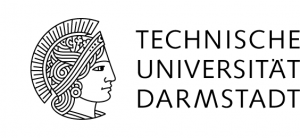Technische Universität Darmstadt
Institute of hydraulic engineering and water resources management
All bachelor courses are designed for a duration of six semesters, i.e. three years, and master courses for a period of four semesters. A bachelor degree is a prerequisite for taking up master course studies. Unless indicated otherwise, studies commence in the winter semester, i.e. as from mid-October.
Degrees: Bachelor, Master, PhD
The Institute of hydraulic engineering and water resources management includes the following sections:
- Water resources management
Courses in hydraulic engineering build on hydro-mechanical and hydrological principles and begins after the intermediate diploma. Studies in hydraulic engineering can be chosen as main extension field of study. The range of topics includes the scientific principles of water movement as well as hydraulic-engineering structures, water resources management or biological-ecological aspects of interventions into water bodies. - Engineering hydrology and water resources management
The basic tasks of this field include the phenomenological and mathematical description of the water cycle including its physical and chemical properties. Essential components of the cycle are precipitation, evaporation, surface runoff, soil moisture as well as groundwater. This includes the measurement of these components and their statistical evaluation. The study of the underlying physical processes and interaction of individual elements is of special importance. For this purpose, mathematical models are almost exclusively developed and applied.
The second major field of activity is developing and managing optimum complex water management systems on the basis of entire river catchments. Again, complex models are applied, into which infrastructural facilities such as dams, irrigation units and sewage cleaning plants are integrated.
Testing station for hydraulic engineering
The testing station deals with basic research and issues of practical relevance such as:
- Model tests made in the fields of river engineering, dam construction, flood discharge units, weirs
- Water runoff from road surfaces, measurement of water film thickness on roads under moving traffic
- Landfill sealing by means of capillary barriers
- Fluid mechanical problems of sewage treatment technology, structural design of buildings in sewage treatment plants
- Effects of bed load on solid walls, abrasion of pipe materials
- Surface roughness and drag
- Impact of biologically populated surfaces on the drag
- Research laboratory for hydrological metrology and state inspecting authority for discharge measurementThe research laboratory focuses on the further development, testing and assessment of measuring processes and instruments for discharge metering in natural and urban catchments.



